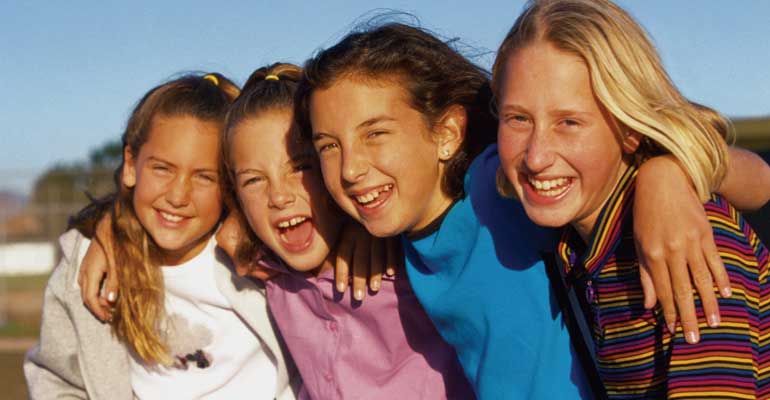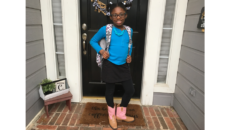Along with increasing awareness of others around them and of how they fit into their world, our school-age children are gaining a broader understanding of how they came to be adopted.
If all her pals live with their birth families, an adopted child may experience some discomfort — subtle or overt. Issues of family resemblance may take on new significance if the child perceives that her family stands out in the crowd. Even a child who feels very secure may not be able to talk about her life story to peers who are not “adoption savvy.”
Friendships with other adopted children can have a positive effect on your child’s sense of identity and self-esteem. Rather than promoting a feeling of difference, the details of her adoption story can now promote a sense of belonging. When adoption becomes a shared life experience, the relief at fitting in is almost palpable. To promote such relationships:
- Hang out with other adoptive families. A buddy-family setting allows contact and friendships between children to build gradually through common experiences. Shared holidays, weekend family time, dinners, and outings can foster close friendships and bonding, enhancing the normality of adopted-peer relationships.
- Look for peers in all kinds of places. Your child may come in contact with another adoptee at school, in an after-school activity, on a sports team, or within your religious community. Seek out the other child’s parents to suggest a playdate or a family outing. Ask friends or family members if they know any adoptive families with children around the age of your child.
- Follow up with your adoption agency. Meetings, family events, and children’s groups sponsored by adoption agencies and support groups are great venues for connecting your child with adopted peers, and your family with others interested in a relationship. Use your agency and social workers as a conduit for locating like-minded families eager to build adoptive-peer relationships.
- Try a peer playgroup. Join with other parents of adopted kids to form a small, monthly (or so) playgroup. Or trade after-school child care in the form of playdates.
- An adoptive-peer group for your child offers a consistency that strengthens relationships and builds a comfort zone through shared experiences. It can help your child incorporate the facts of her adoption into her self-image in a positive way. In later years, if and when she needs to talk about feelings surrounding adoption, her childhood friends may grow to become her trusted confidants.

